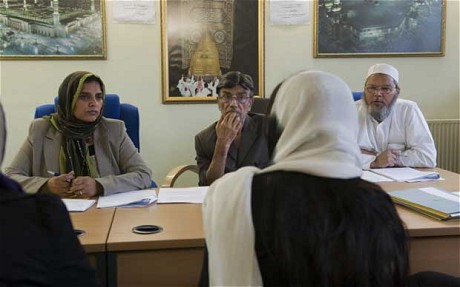LONDON – Up until recently, British Muslims who did not conduct a civil wedding ceremony in addition to the Islamic Nikah ceremony were not recognized to have wed, nor granted normal divorce rights.
A poll conducted in 2017 by Channel 4 news showed this to be 64% of women in potential legal limbo.
But this week a high court judge has concluded that Nasreen Akhter, who had been married to Mohammed Shabaz Khan without a civil wedding, could be considered as married under English marital law.
This problem of marriages that are not registered in civil ceremonies and, in conformity with the law of the land, is particularly unique to the UK with campaigners such as Aina Khan OBE working tirelessly to address and overcome the difficulty faced by British Muslim women seeking divorce.
In an opinion piece in The National, British Muslim author Shelina Janmohamed asks the question, “Has it really come to the stage where secular courts are providing better protection for Muslim women undergoing divorce?”
“Since a nikah conducted in the UK is currently not recognized as a legally valid marriage, many Muslim women have found themselves left without the protection of the law in the case of divorce, death, or a husband remarrying, either unaware that they have no legal protection or on the promise of a civil marriage which never materializes. This is sometimes justified within Muslim communities, who say that Islamic marriage is the only one necessary,” writes Janmohamed.
All Muslims are taught from a young age that Islam honors women. We are taught traditions that paradise is under the feet of our mothers and that the best of men are those who are best to their wife. But Janmohamed continues, “Doesn’t it make a mockery of claims about the sanctity of marriage? Where are the spiritual leaders in charge of the way marriage is managed in Muslim families – and this is not just a problem in minority Muslim countries – who should be fixing these problems?”

Women Rights
The underlying issue, particularly in the UK, is that a significant majority of our mosques and community centers are built less to serve the interest of the congregation but more often than not to satisfy the ego of ‘community leaders’ who channel authority and influence to their respective communities through the mosque and community center.
In recent months this reality has taken a particularly harsh visualization as female British Muslim campaigners, such as Julie Siddiqi, tirelessly continue to ensure better and fairer representation of Muslim women in mainstream Muslim society and activities.
In one example, Julie writes “Yep. Another ‘conference’ on marriage and family…. with an all male-speaker line-up.” – This in reference to a ‘Family Conference’ organized by Al-Ihsan Marriage Services held at the London Muslim Centre.
Speakers at the event included Dr. Muhammad Abdul Bari MBE, the former general secretary of the Muslim Council of Britain and current secretary of Muslim Aid. While he himself has spoken out against the inclusion of women in public debates and talks, he still partook in this event which excluded women on the panel. If we as British Muslims cannot even get women on a panel to talk about family and marriage, is it any wonder that the attitude to women and women’s rights have hit an all-time low?
Prophet Muhammad, peace and blessings be upon him, spent his life working to improve the poor condition and treatment of women. He brought and taught a religion which lifted up, empowered women, granted women rights, 1,400 years ago, which many British Muslim women do not have today in the UK.
Indeed in the absence of leadership from British Muslim community leaders, it has fallen on the secular law of the country to secure and grant women the rights that Islam afforded women.
Why are British Muslim women not included in public platforms and discussions? Why are British Muslim women not taught about registering their marriages under the civil law too?
Why are British Muslim imams and leaders not fulfilling the teachings of Prophet Muhammad by denying women the very rights that Prophet Muhammad struggled so long and so hard to secure? And what are we are British Muslims going to do to address and overcome the realities faced by some Muslim women when their rights are not granted to them?
The time for change is here. The time to return to the Sunnah of granting women their due rights has arrived. And in the absence of wisdom and leadership from Muslim preachers and lawmakers, Janmohamed is right, the secular courts of the UK will grant women the rights which Islam offered them 1,400 years ago.
